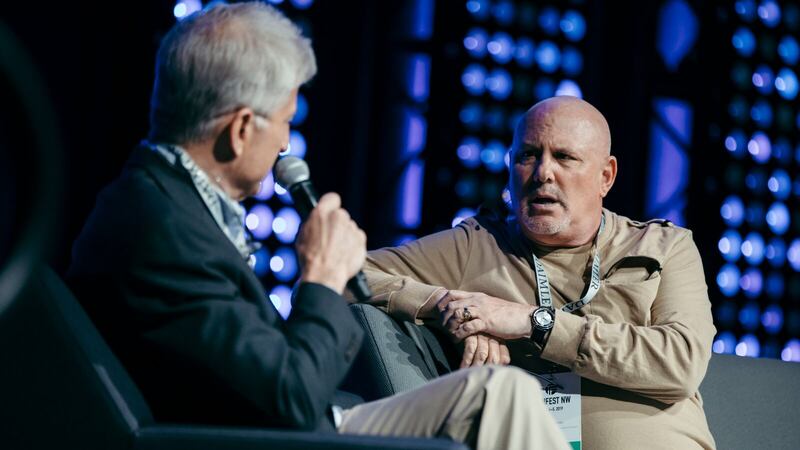G. Pascal Zachary, former WW and Wall Street Journal reporter, says everyone needs to calm down. Robots aren't going to take over the world.
During an at times humorous and wide-ranging talk at TechfestNW in April, Zachary, currently a professor of practice at the Arizona State University and the author of Endless Frontier: Vannevar Bush, Engineer of the American Century, theorized about how humans will adapt to a new era of technological integration.
He said that under the darkest scenario "the best and the brightest among us will supervise robot armies while the rest of us live spartan lives of enforced leisure sustained by meager incomes."
"In this dark scenario," he added, "most of us are desperately trying to survive in the shadow of our robot overlords. I don't subscribe to this dark scenario."
Zachary said that evidence shows that humans seek face-to-face interactions over relationships with robots.
"We want the real thing in human relationships," he said. "Ask Barbara Streisand why she had a beloved dog cloned at great expense. She didn't buy a robot dog."
He added that people tend to have built-in "work instincts" that facilitate an "irrepressible desire to toil; to create something of value," and that a massive growth in jobs in the U.S. in the past ten years points to stability in employment that automation doesn't threaten.
But if the thrust of the work of machine learning is to replace expensive human labor, moderator and WW publisher Mark Zusman asked, "Why are you so sanguine that we're all going to have jobs?"
Zachary said it's because job creation isn't dependent on technology.
"Why has the U.S. created in the last ten years many millions of jobs and Europe, zero," he said. "They have the same technologies."
However, he expressed concern that in developing countries, where there is not an "an enormous supply of funds to pay people to work," automation might wipe out jobs.
But, he concluded, "if these are so powerful, these technologies, if they're not mostly going to augment human capacities, why are we facing a labor shortage now? Setting aside the quality of pay; setting aside the quality of work. We have a 50 year high in employing Americans."
